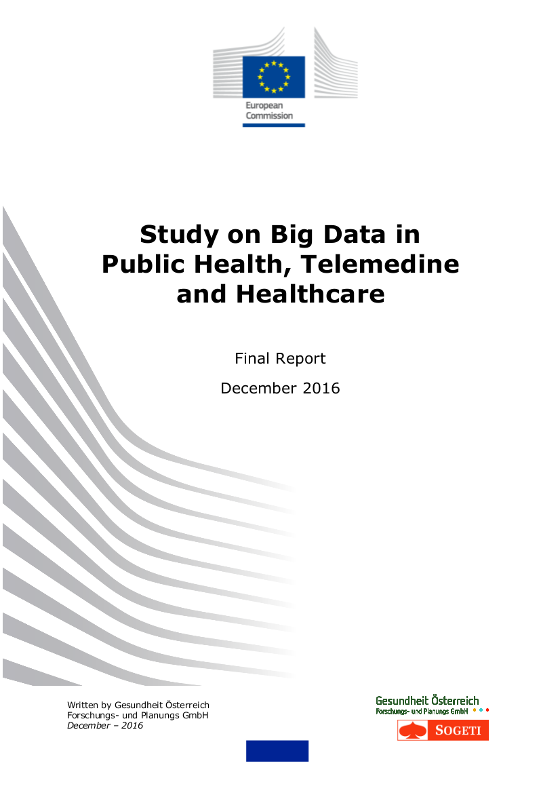 The aim of the study on Big Data in Public Health, Telemedicine and Healthcare is to identify applicable examples of the use of Big Data in Health and develop recommendations for their implementation in the European Union. Examples of Big Data in Health were identified by a systematic literature review, after which the added value of twenty selected examples was evaluated. Based on the assessment of the added value and the quality of the evidence, ten priority examples were selected. Furthermore, potential policy actions for the implementation of Big Data in Health were identified in the literature, and a SWOT analysis was conducted to check the feasibility of the proposed actions. Based on this analysis, and with the help of renowned experts, the study team developed ten policy recommendations in the field. These recommendations were validated through public consultations at three relevant conferences in Europe and were again reviewed by the Expert Group.
The aim of the study on Big Data in Public Health, Telemedicine and Healthcare is to identify applicable examples of the use of Big Data in Health and develop recommendations for their implementation in the European Union. Examples of Big Data in Health were identified by a systematic literature review, after which the added value of twenty selected examples was evaluated. Based on the assessment of the added value and the quality of the evidence, ten priority examples were selected. Furthermore, potential policy actions for the implementation of Big Data in Health were identified in the literature, and a SWOT analysis was conducted to check the feasibility of the proposed actions. Based on this analysis, and with the help of renowned experts, the study team developed ten policy recommendations in the field. These recommendations were validated through public consultations at three relevant conferences in Europe and were again reviewed by the Expert Group.
The recommendations aim to benefit European citizens and patients in terms of strengthening their health and improving the performance of Member State’s health systems. They should be seen as suggestions for the European Union and its Member States on how to utilise the strengths and exploit the opportunities of Big Data for Public Health without threatening privacy or safety of citizens.
Recommendations were developed for ten relevant fields: awareness raising, education and training, data sources, open data and data sharing, applications and purposes, data analysis, governance of data access and use, standards, funding and financial resources, as well as legal aspects and privacy regulation.
Download: Study on Big Data in Public Health, Telemedine and Healthcare (1.655 KB).
Download from eHealthNews.eu: Study on Big Data in Public Health, Telemedine and Healthcare (1.655 KB).